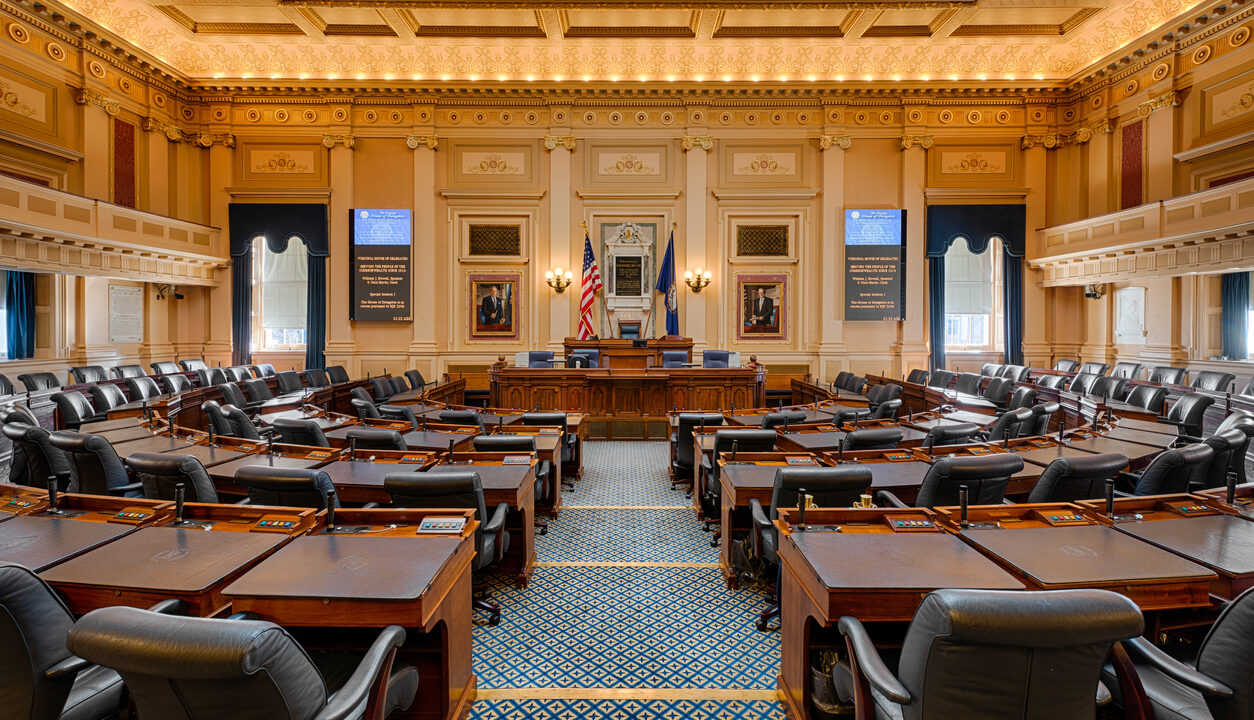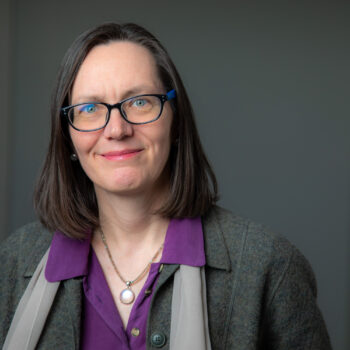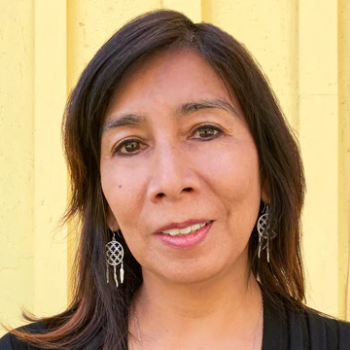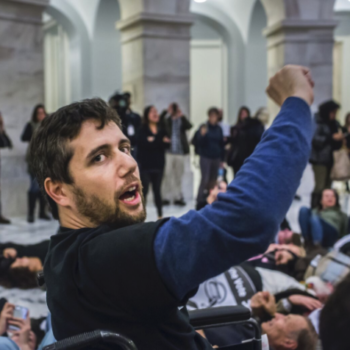Be A Hero’s Ady Barkan talks with Diane Thompson of the Consumer Rights Regulatory Engagement Advocacy Project and Lorelei Salas, a fellow with the Open Society Foundation, about regulatory enforcement and implementation — and why progressive organizers should focus on the mechanisms through which laws become practices. This conversation has been edited and condensed.
Ady Barkan: Welcome everyone. This interview is about the powers of government, regulatory enforcement and implementation. These powers are often not hot topics in the progressive movement but have significant impact. Earlier in my career, I worked at Make the Road New York, where we were focused on making sure labor laws we worked to pass were actually enforced. I also launched the Fed Up campaign to try to bring people directly impacted by economic inequality into conversations with the Federal Reserve.
Diane Thompson: I started my career as a lawyer in East St. Louis. What I discovered, very shortly after I got there, was that money was being siphoned out [of communities] as fast as we could create wealth. It was being taken by predatory lending. The regulations the Federal Reserve Board issued [were] leading to my clients’ continued impoverishment. The voices of the people I represented were nowhere heard or understood in the federal government. I’ve been working on regulations ever since. In the last two years, I helped found an organization called the Consumer Rights Regulatory Engagement Advocacy Project. We’ve been trying to make the case for why regulatory advocacy is important and so underused.
Lorelei Salas: I’m really thrilled to be here today with Ady and Diane. I moved to the U.S. when I was 19, and I held every single low-wage job you can imagine. I ended up, after graduating from law school, in government work — the Attorney General’s office and then the New York State Department of Labor. I was Commissioner for the New York City Department of Consumer and Worker Protection. Right now, I am a fellow with the Open Society Foundation, and I’m doing research on how consumer protection laws can be used to support worker empowerment. My role has been working with elected officials to design the laws that will then be enforced at my agency.
DT: When I was a law student, I worked on litigation involving discrimination in public housing. I have very clear memories of HUD putting out for comment regulations about how they were going to evaluate criminal records and who they were going to hold responsible for criminal behavior. They were implementing all kinds of one-strike policies. I didn’t really understand what having a regulation out for Notice and Comment meant, why it mattered. What it meant was, in the course of six months, I went from being able to keep women who were being battered by their boyfriends in their homes to having those women evicted because their criminal activity had occurred on the premises. I came to believe that we fail our clients when we don’t engage with the regulatory process.
AB: Do you think that Notice and Comment periods actually make a difference? Is it worth submitting comments?
DT: It’s absolutely worth submitting comments. Another good example is when the Federal Reserve decided not to regulate overdraft under the Truth in Lending Act. The Fed put out for comments something saying, “Should we treat this under Reg E or Reg Z? What should we say about it under Reg Z, which is the Truth in Lending Act?” There were lots of comments by banks; fewer comments by community groups and by consumer advocates. The Fed ended up going with saying, “It’s fine. You can have this system so long as you have this boilerplate language that you include, that you maintain discretion to extend an overdraft.” The whole development of the multi-billion dollar revenue stream of overdraft fees for banks came about because of that Notice and Comment period. The Fed failed to take into account the impact of that decision on low-income communities across the country and their access to the banking system.
It’s my experience that government regulators, by and large, want to do the right thing. Those lawyers are looking for information that they can use to come to the best outcome. If they don’t have it, there’s nothing they can do. They need to get those comments in, and they will be looking for them.
It’s not just in the Notice and Comment process. I encourage people to engage earlier. You really want to be in there, even before the Notice of Proposed Rule Making goes out the door, so you can influence how the regulators are thinking about the problem. Almost every agency has some Office of Community Engagement. You can call them up and say, “I’m really passionate about this issue. I’ve been talking to a lot of people. I’d like to talk to the people who are thinking about this issue because I have some ideas about what the problems are and how they should be presented.” In most cases, you can get that meeting.
LS: Reach out to the agencies and just ask us if we can do something. We saw it during the pandemic, where governments were issuing emergency rules. Many of us had not seen an emergency like the pandemic. We were responding to advocates and organizers who said to us, “What can you do about debt collections during this really difficult time for consumers? Can you suspend those?” It pushed us to look into our limitations and what we could do and not do and to realize there was an existing rule in place that could be used to suspend collections for a particular reason.
DT: The other thing I would add is commenting is much easier than you think. What is most useful to the agency is you’re telling them what you know that they don’t know, things you know from your daily work, from your daily experiences. That is the most important thing you can offer the agency.
AB: When I first founded the Fed Up Campaign, I was trying to bring the attention of our movement to an institution that has significant power over our economy but was frequently hidden from public view and accountability. In your experience, where are progressives leaving power on the table in our efforts to build governing power? What should we be paying attention to that we aren’t, and why do you think that’s happening?
LS: When I started at the New York State Department of Labor, advocates and organizers who wanted this agency to become much more aggressive put together an entire agenda with action items. Having a roadmap like that helps those who are trying to organize and it gives us as government staff something to be able to help out with. Something that is a pet peeve for me is that we have such great new laws in New York City, but we did not have a budget to match that. We do not have the resources. The Office of Labor Policy and Standards in the Department of Consumer and Worker Protection has less than 25 staffers. To make sure that your goals are realized, there needs to be an investment of resources into this work. I always say, “The laws mean nothing unless there’s someone actually enforcing them.”
DT: In general, advocacy with regulatory bodies is underused by progressives and by people working on behalf of marginalized communities. I think some of it is about intimidation, frankly. I think people sometimes believe they’re only going to listen to industry, anyhow, so why bother. Of course, if only industry talks to them then, yes, they will only listen to industry. They can’t make up comments that they don’t receive. I completely agree that it’s great to give agencies a roadmap for the change you want to see, but even if you’ve got one small thing you want them to do, that is important. Anything that we can do to make sure those voices are heard will shift the conversation. It can be incremental.
LS: The relationship building piece of it is so important. So many things have come out of meetings that were requested by advocates, legal services organizations, to talk about an issue. You bring to the agency this issue, this problem, that you’re seeing in the community, and you bring the stories, and you ask, “What can you do?” So much rule making and policy changes are implemented because of those meetings.
DT: Right. It’s true the squeaky wheel gets the grease. There are oftentimes great advocacy and organizing campaigns around getting a bill enacted. What happens after that? It may be that things in the statute aren’t clear, that the agency needs to write clarifying regulations for. It may be that the statute can’t take effect until the agency does some further work. Those are all places where we need to engage and we can make a big impact. The sooner you do, the more impact you’re going to have at any level.
I think people get discouraged if you’re talking about moving an agency. It’s often the long game. The agency is not going to be able to tell you, “Yes, this is what we’re doing. Yes, we agree with you. Yes, this is where we are in our thinking.” They can’t. It will be a while before you’ll really be able to tell, and you need to have patience with that. It really matters what those individual comments say. It’s not the number. It’s not the dollar amount. It’s not the advertising. It’s just making sure that those perspectives get on the docket one way or another.
AB: A key tension in policy making is the dynamic between passing legislation and then transitioning into enforcement or rule making. Failures in enforcement are frequently justifications for creating new laws, and rapid change in policy makes enforcement challenging. Lorelei highlighted the need for sufficient budget for enforcement. Beyond budget, what does it look like when the relationship between legislation and enforcement is in balance? What does it look like when it’s out of balance?
LS: I’d say that the more you can have advocates of agency enforcement engaged from the moment the law is designed, the better results you will have. A lot of cases would start at my former agency, but the cases themselves were heard in a sister agency that maybe didn’t have the same desire to resolve the case. Similarly, I’ve seen legislation have too many pieces that seem in and of themselves to be really good, but it makes it so difficult to enforce. It takes up a lot of resources, and it’s also difficult for workers to understand what their rights are.
AB: How would you like to see organizers engaging in regulatory change and enforcement? I would love if you could give us an example of when engagement with organizers has been helpful and when it has been harmful.
LS: One of the things that was super helpful, at least in a couple of pieces of legislation, was that organizations were written into the statute as potential complainants. Not only can you have an individual complainant, but you can have a union or other grassroots organization be a complainant in the law. Once you have the organization built into the law, it makes it so much easier for the agency to actually be responsive and to be able to engage in an exchange of information. In one particular case, we worked closely with SEIU Local 32BJ as they were seeking to organize Chipotle. Chipotle is a large corporation with over 80 stores across New York City. There’s no way we would have had the capacity to interview hundreds of workers at all these locations. Having the [SEIU] organizers give us real-time information on whether the company was changing their practices or not was super helpful.
We held several meetings where workers of Chipotle would come into our office and meet with investigators face to face. That collaboration helps to foster accountability from agency staff, more compassion, because you see this individual, you cannot ignore them. They are there in front of you.
AB: Talk to me about the relationship between elected officials and bureaucrats that share the same goals. When does the engagement of elected officials advance your ability to do your job, when does it make it harder, and why?
LS: While advocates and organizers were working on groundbreaking legislation, we were working on the very unsexy fixes that needed to get done. To give you an example, we needed to get the state of New York to give us a power called docketing to be able to go into court and turn a decision into a real judgment. We finally had a champion, an elected official in the state assembly, who chose to help us push this law and this legislation became law during the pandemic, which is unbelievable. We got it done because this is an elected official who came from doing work as an organizer many, many years ago, who I met through my work in organizing, who really believed that this is important. I found it super important as an agency head to build relationships with elected officials at the city council level. We also went to the same advocates, organizers who pushed us on other things. We asked them to write letters of support on behalf of our legislation because no one knew that we had this huge gap in our enforcement tools. It was only us who were that invested in getting it fixed.
A lot of the elected officials liked us as an agency, so they continued to try and put more things in our chapter of the administrative code; they kept trying to give us more work, basically. My only beef about that was that I always felt they needed to just as strongly be pushing for resources for the agency. I will remind people all the time, “This is fantastic, but don’t forget that without the budget, this is just going to be beautiful language. Let’s work on that.”
DT: I would say that Lorelei hit on the thing that can make it harder, which is that elected officials don’t always understand the constraints that agencies operate under. They may think that agencies can do things that they’re legally prohibited from doing. They may push them in a direction that doesn’t make sense. That can make it more challenging to do good work.



